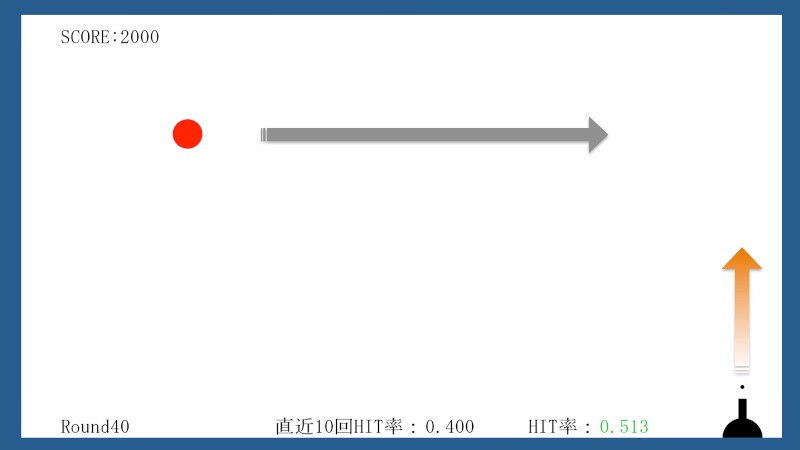In computer games, it is said that “fun” and immersion arise when the player’s skill level matches the game’s difficulty. On the other hand, if a game is too difficult for beginners, they may leave the game before experiencing any sense of improvement. This study investigates how a sense of improvement can be created in a shooting game, and how that sense influences a player’s motivation to continue playing. To address this, we developed and evaluated a method that subtly assists the player’s performance—such as adjusting projectile behavior—so that the player feels as though their skills are steadily improving, without being aware of the adjustment.
The adjustment implemented in the turret-style shooting game predicts the landing point of a fired projectile based on its speed. If it is determined that the shot will not hit the target, the system subtly adjusts the projectile’s speed so that it will reach the target. As a result, it becomes easier for the player to hit targets on the game screen. By applying this adjustment when the player’s performance is stagnating, it enables them to experience a sense of improvement more readily.

In the experiments, it was confirmed that the moments when players felt bored or wanted to quit often coincided with periods of stagnation or decline in their performance. The study also identified, through further testing, the specific conditions under which it is possible to adjust the projectile speed to aid accuracy without the player noticing the support. At the same time, it was shown that such adjustment not only improves hit rates but also enhances the player’s sense of improvement, potentially increasing their motivation to continue playing.

